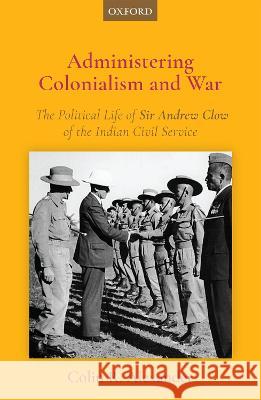Administering Colonialism and War: The Political Life of Sir Andrew Clow of the Indian Civil Service » książka
Administering Colonialism and War: The Political Life of Sir Andrew Clow of the Indian Civil Service
ISBN-13: 9780199493739 / Angielski / Twarda / 2019 / 308 str.
Colonialism is a dehumanizing experience for all those at the mercy of its power structures. The officers of the Indian Civil Service (ICS) were no exception. This book focuses on the role of ICS in World War II and engages in a wider debate about colonialism's impact on its administrators and subjects. The author looks at the events of World War II specifically in the province of Assam in India's North-East. It is here that the British and American troops were stationed as they attempted to retake Burma following Japan's invasion in 1942 and supply the Allied Chinese by road and air. The volume also focuses on how radio broadcasting was used to manufacture the Indian public's consent for the war effort and explores the horrors of the Bengal Famine and the controversies surrounding the Britishresponses to it. The central character in the book's narrative is Sir Andrew Clow who was a career civil servant in India. He was the Minister for Communications during the late 1930s and early 1940s before he became the Governor of Assam in 1942.
This book explores the world of colonial India during the 1930s and 1940s. The reader is introduced to a number of fascinating lesser-known characters of British colonial administration and is provided with in-depth discussion of their roles during the late Raj. The book focuses on three key aspects of the period: the birth of radio broadcasting in India; World War II on the sub-continent; and the Bengal Famine that took hold during the conflict.











